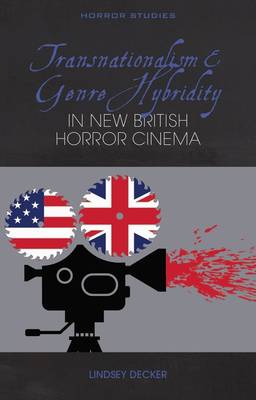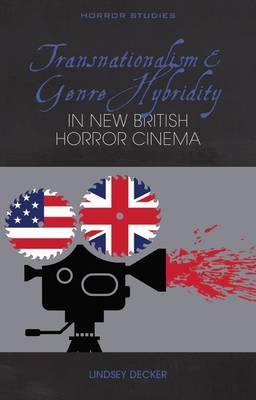
- Afhalen na 1 uur in een winkel met voorraad
- Gratis thuislevering in België vanaf € 30
- Ruim aanbod met 7 miljoen producten
- Afhalen na 1 uur in een winkel met voorraad
- Gratis thuislevering in België vanaf € 30
- Ruim aanbod met 7 miljoen producten
Zoeken
Transnationalism and Genre Hybridity in New British Horror Cinema
Lindsey Decker
€ 60,95
+ 121 punten
Omschrijving
Intervening in conversations on transnationalism, film culture, and genre theory, this book theorizes transnational genre hybridity--combining tropes from foreign and domestic genres--as a way of thinking about films through a global and local framework. Taking the 2000s British horror resurgence as a case study, Transnationalism and Genre Hybridity in New British Horror Cinema combines genre studies with close formal analysis to argue that embracing transnational genre hybridity enabled the boom. Starting in 2002, this resurgence saw British horror film production outpace the golden age of British horror. Yet, resurgence films like 28 Days Later and Shaun of the Dead had to reckon with horror's vilified status in the UK, a continuation of attitudes perpetuated by middlebrow film critics who coded horror as dangerous and Americanized. Moving beyond British cinema studies' focus on the national, this book also presents a fresh take on longstanding issues in British cinema, including genre and film culture.
Specificaties
Betrokkenen
- Auteur(s):
- Uitgeverij:
Inhoud
- Aantal bladzijden:
- 288
- Taal:
- Engels
- Reeks:
Eigenschappen
- Productcode (EAN):
- 9781786836984
- Verschijningsdatum:
- 1/05/2021
- Uitvoering:
- Paperback
- Formaat:
- Trade paperback (VS)
- Afmetingen:
- 142 mm x 218 mm
- Gewicht:
- 476 g

Alleen bij Standaard Boekhandel
+ 121 punten op je klantenkaart van Standaard Boekhandel
Beoordelingen
We publiceren alleen reviews die voldoen aan de voorwaarden voor reviews. Bekijk onze voorwaarden voor reviews.











